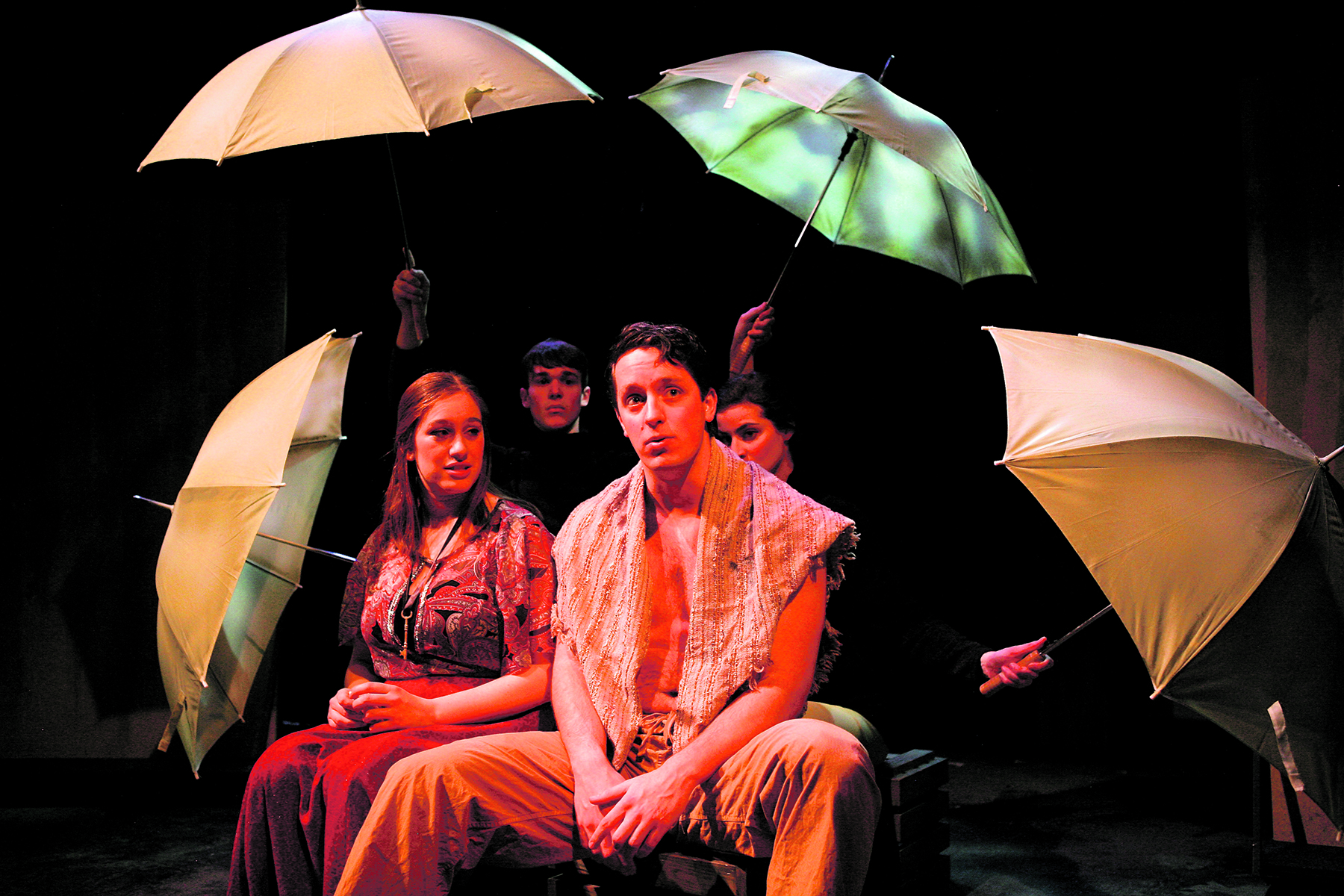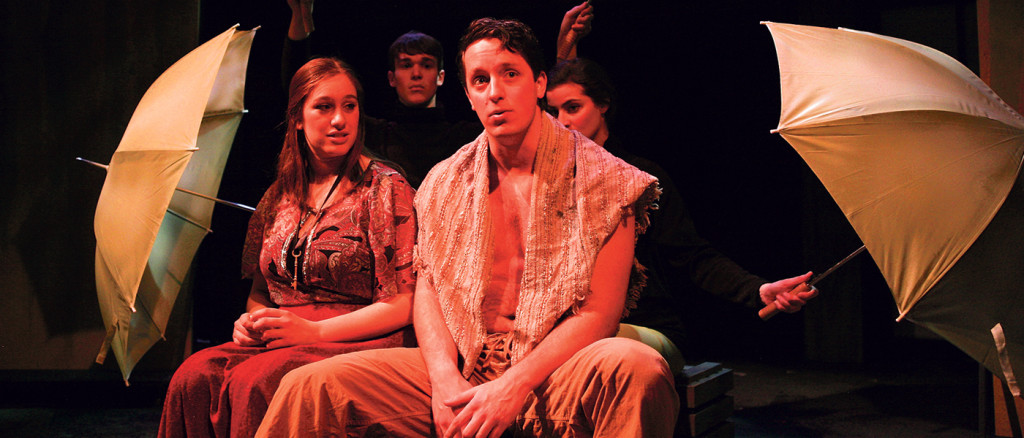Bertolt Brecht’s The Good Woman of Setzuan, one of the 200 most celebrated stage plays of the 20th century, is being produced the second time in two decades by the Syracuse University Drama Department. Only this time it is not on the Storch Theater stage, the usual venue, but is instead presented upstairs in the Loft Theater, a black box. The smaller space, which puts the action in the faces of people in the front row, evokes the kind of stages Brecht had to use while developing his influential theatrical aesthetic back in Berlin during the Weimar Republic.
Good Woman is a highly characteristic work, even if it was completed in Los Angeles in 1943 while the playwright was avoiding the Nazis. Having fewer seats available is also a tacit admission that this production is intended for audiences who admire Brecht and know what they’re getting into.
No other modern playwright tried so hard to reach the groundlings as Brecht did. He found the heavy bourgeois realism of the preceding generation (Henrik Ibsen, David Belasco) to be both dishonest and boring. What we see here is the authentic playwright, with masks, cartoon noises, exaggerated speech, abrupt transitions, musical interruptions and some of the affect of slapstick. Director Felix Ivanov, a graduate of Moscow’s Schukin Theater School, assures that Brecht’s celebrated “alienation effect” will be heeded here. We always know that what we are seeing is an artifice, and that we should not indulge sticky emotions and remain detached from characters, even if one of them is indeed a “good woman.”

Ivanov is also a movement specialist who has choreographed countless fight scenes and duels in local productions over the past few years. Sure enough, in Good Woman characters are defined as much by body set and gait as they are by dialogue and costume.
Action begins when three gods (Adam Segrave, Brian Sandstrom and Sam Odell), western-looking, barefoot dudes wearing long robes, announce to villagers that they are looking for a truly good person to reward. A water seller named Wong (Craig Kober) leads them to Shen Te (Jesse Roth), a sweet-faced prostitute who appears no longer to be plying her trade. She asks the gods how she can retain her goodness in life and still makes ends meet. They have no answer but offer her some money. Shen Te uses it to buy a tobacco shop from crabby Mrs. Shin (Erin Walsh), an ungrateful seller who asks for rice and money to help her entire family. A carpenter (Thomas Countz) also demands a huge back payment for previous work. The shop becomes so raucous it invites the attention of the police (Javier Prusky). What is a good woman to do?
Help arrives in the person of a “cousin” named Shui Ta. It’s Shen Te with an Asian-appearing, mustachioed half-mask, leaving her mouth unimpeded to speak. The imposture is as clear to us as is the cross-dressing in Shakespeare comedies, but it does the trick for the other characters. Shui Ta is an efficient businessman who can save the tobacco shop, which does not make him “good” in the eyes of the gods, nor the townies. With the mask off, however, Shen Te regains her femininity and returns to a life of trying to do good.
Prime in her efforts is to save an unemployed young pilot, Yang Sun (Andrew Garrett), so despondent that he wants to hang himself. Worse, Shen Te learns that Yang Sun would really like to take over a position at the airfield in Peking, if only he could come up with a substantial payment. Shen Te would deliver, even at the price of leaving him, and considers marrying instead the dandified barber Shu Fu (Seth Landau). At this inopportune moment Shen Te must announce that she is pregnant. Events lead to the courtroom, where Shen Te is to be judged on how good she has been.
In Brecht’s aesthetic, many characters are portrayed as stylized caricatures, which does not invite audiences to swoon. Several students are distinctly polished at this, notably Erin Walsh as Mrs. Shin, Seth Landau as Shu Fu the barber, and Craig Kober as Wong the water seller. In the two most naturalistic roles, both Andrew Garrett’s Yang Sun and Jesse Roth’s Shen Te are magnetic and compelling. Maybe Brecht did not want us to like them, but we do.



